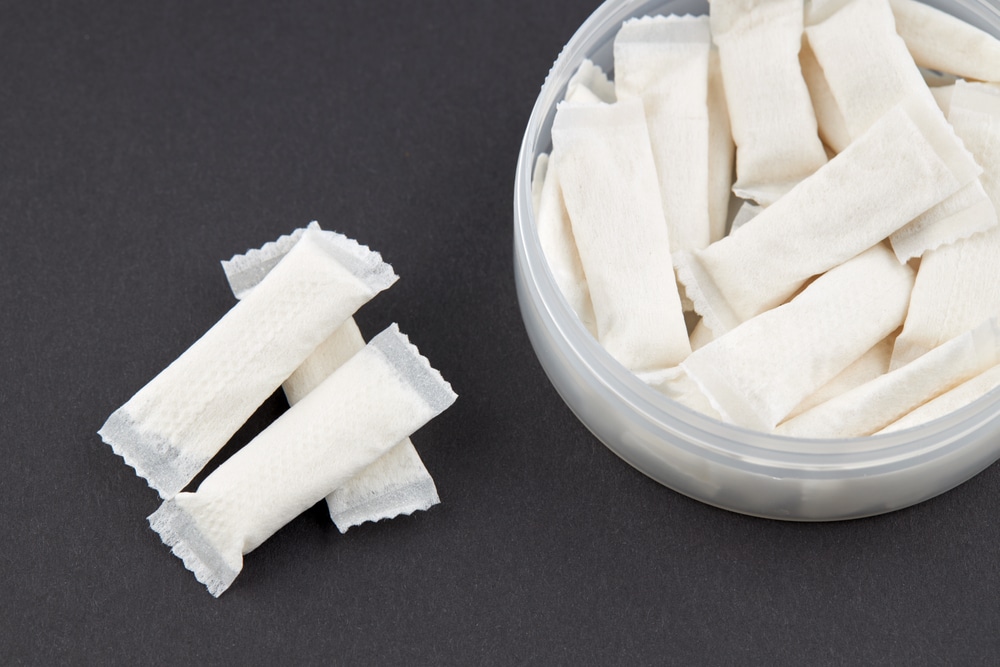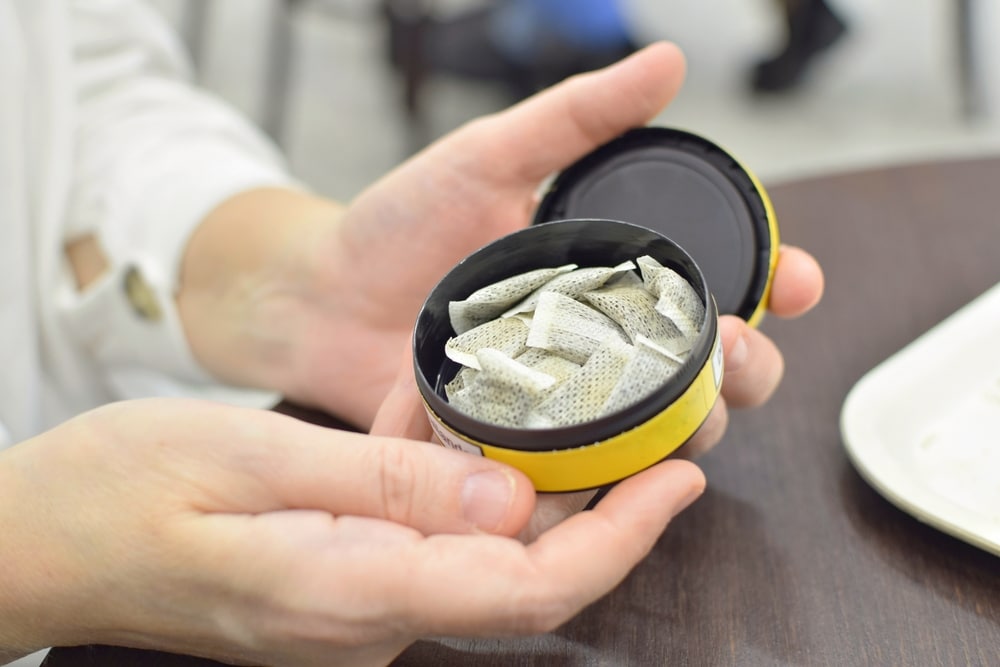Nicotine Pouches and FDA Regulations

Nicotine Pouches and FDA Regulations: A Complete Guide
Nicotine pouches have gained popularity in recent years as an alternative to smoking and other forms of nicotine consumption. These smokeless, spitless products are designed to provide users with a nicotine fix without the harmful byproducts of tobacco combustion, such as tar or carbon monoxide. However, with their rising popularity comes increased scrutiny, particularly from regulatory bodies like the U.S. Food and Drug Administration (FDA).
The FDA plays a critical role in ensuring that tobacco products, including nicotine pouches, are manufactured, marketed, and sold in compliance with safety standards.
In this guide, we will dive into FDA nicotine pouch compliance, from the agency’s regulatory role to the legal issues surrounding these products and their sale to underage consumers.
Understanding FDA Regulations for Nicotine Pouches
Nicotine pouches, though relatively new, fall under the regulatory framework established by the FDA’s Deeming Regulation. This regulatory environment is essential in safeguarding public health and ensuring that nicotine products are produced, marketed, and sold responsibly.
Overview of FDA’s Role in Regulating Nicotine Pouches
The FDA is the primary federal agency tasked with regulating nicotine and tobacco products in the U.S. The Family Smoking Prevention and Tobacco Control Act, enacted in 2009, granted the FDA authority over cigarettes, cigarette tobacco, roll-your-own tobacco, and smokeless tobacco. However, as the nicotine product market has evolved to include novel products like nicotine pouches, the FDA has extended its oversight to these emerging products under the broader category of “nicotine delivery systems.”
FDA nicotine pouch compliance includes ensuring that manufacturers adhere to specific product standards, proper labeling, and marketing restrictions. Additionally, the FDA monitors how these products are introduced to consumers, with particular attention paid to whether manufacturers make any unauthorized health claims.
Key Compliance Requirements for Nicotine Pouch Manufacturers
Manufacturers of nicotine pouches must meet a range of compliance requirements to bring their products to the U.S. market. This includes submitting a premarket tobacco product application (PMTA) for FDA nicotine product approval. The PMTA is designed to demonstrate that the product is appropriate for public health, which includes proving that it reduces harm or risk to current tobacco users without attracting non-users, particularly youth.
In addition to premarket approval, nicotine pouch manufacturers must also adhere to the following:
- Labeling requirements: Nicotine pouches must have clear and accurate labeling that warns users about the risks of nicotine addiction.
- Good Manufacturing Practices (GMP): These standards ensure that nicotine pouches are produced in sanitary conditions with quality control measures in place.
- Marketing restrictions: Manufacturers are restricted from making unsubstantiated claims about the health benefits of their products or marketing them in a way that appeals to minors.
FDA Enforcement Actions and Warning Letters Related to Nicotine Pouches
When manufacturers or retailers fail to meet the FDA’s compliance requirements, the agency has the authority to take enforcement actions. This often includes issuing warning letters to companies that violate regulations. Over the past several years, the FDA has sent numerous warning letters to nicotine pouch manufacturers for failing to obtain PMTA approval or for marketing their products inappropriately. In some cases, companies were found to be making unauthorized claims that their products could help with smoking cessation, a claim that requires separate FDA approval as a drug or medical device.
The FDA’s enforcement actions also target retailers who sell nicotine pouches to underage consumers, as part of their broader strategy to prevent youth access to nicotine products.

Non-Tobacco Nicotine Products and FDA Compliance
Nicotine pouches are often made with synthetic nicotine rather than nicotine derived from tobacco plants. This distinction raises unique regulatory challenges, as synthetic nicotine falls into a different classification than traditional tobacco-based products.
FDA’s Classification of Non-Tobacco Nicotine Products
In 2022, the FDA expanded its regulatory oversight to include non-tobacco nicotine products. Under the new rules, non-tobacco nicotine regulations require manufacturers to submit PMTAs just like traditional nicotine products. This move was designed to close a regulatory loophole that had allowed some companies to avoid FDA oversight by using synthetic nicotine.
Now, whether a nicotine product is derived from tobacco or synthesized in a lab, it is subject to the same FDA regulatory standards. This includes requirements for product approval, labeling, marketing, and sales restrictions.
Differences Between Tobacco and Non-Tobacco Nicotine Regulations
Despite being subject to similar approval processes, there are subtle differences in how the FDA handles tobacco-based nicotine versus non-tobacco nicotine products. For example, non-tobacco nicotine pouches may face less public scrutiny than their tobacco counterparts, as they do not contain the harmful byproducts of tobacco combustion.
However, because the long-term health effects of synthetic nicotine use are still relatively unknown, the FDA may impose additional requirements on these products as more research becomes available. As of now, compliance requirements focus on ensuring that both tobacco-based and synthetic nicotine products meet public health standards.
Compliance Challenges for Nicotine Pouch Products in the U.S. Market
Navigating FDA nicotine pouch compliance can be challenging for manufacturers, especially when it comes to the PMTA process. The rigorous requirements and documentation needed to demonstrate a product’s safety and appropriateness for public health can be time-consuming and costly.
Moreover, the synthetic nature of non-tobacco nicotine products introduces additional regulatory complexity. Manufacturers must stay informed about evolving FDA regulations and ensure that they are meeting all necessary compliance requirements to avoid enforcement actions.
Legal Issues Surrounding Nicotine Pouches and Underage Sales
One of the most pressing concerns regarding nicotine pouches, and nicotine products in general, is their appeal to minors. The FDA has made it a priority to prevent underage sales of nicotine products, including nicotine pouches, through both regulation and enforcement.

FDA’s Efforts to Prevent Underage Sales of Nicotine Pouches
To combat the rise of underage nicotine use, the FDA has implemented strict regulations on the marketing and sale of nicotine products. Under the Tobacco Control Act, it is illegal to sell nicotine pouches or any other tobacco products to individuals under the age of 21. Retailers must verify the age of customers through a government-issued ID before completing a sale.
The FDA also monitors advertising strategies, ensuring that marketing efforts do not target youth or present nicotine pouches as trendy or appealing to minors. Failure to comply with these rules can result in significant penalties for retailers and manufacturers.
Recent FDA Warning Letters to Retailers and Manufacturers
The FDA has issued several warning letters to retailers and manufacturers who fail to adhere to age verification laws and marketing restrictions. In 2023, for instance, numerous retailers were cited for selling nicotine pouches to underage customers during compliance check inspections. The agency continues to step up its efforts to curb underage access by working with state and local authorities on enforcement actions.
Ensuring Compliance with Age Verification Laws for Nicotine Products
Retailers play a crucial role in ensuring compliance with age verification laws. To prevent the sale of nicotine products to minors, businesses must invest in robust age verification systems, including point-of-sale technology that automatically checks the birth date of a customer based on government-issued identification.
Online retailers face even greater challenges, as verifying the age of a customer remotely is more difficult. To mitigate this, many e-commerce platforms now use third-party age verification services to ensure compliance with federal law.
FDA Guidance with FDA Atty
The landscape of FDA nicotine pouch compliance is evolving rapidly as the agency tightens its regulations on tobacco-based and synthetic nicotine products. As the market for nicotine pouches continues to grow, staying informed about FDA regulations is essential for both manufacturers and sellers to operate within the law.
At FDA Atty, we are committed to ensuring our clients feel confident and informed throughout every step of our collaboration. With our extensive expertise in FDA regulations, we provide reliable legal guidance to help safeguard your business both now and in the future. Contact us today.
Are you in trouble with the FDA?
Don’t panic — you’ve got backup. Download 5 Tips to Help You Navigate FDA Enforcement and learn how to resolve the situation right now.